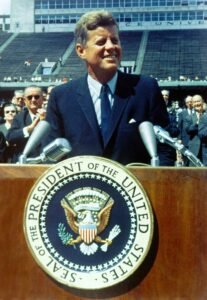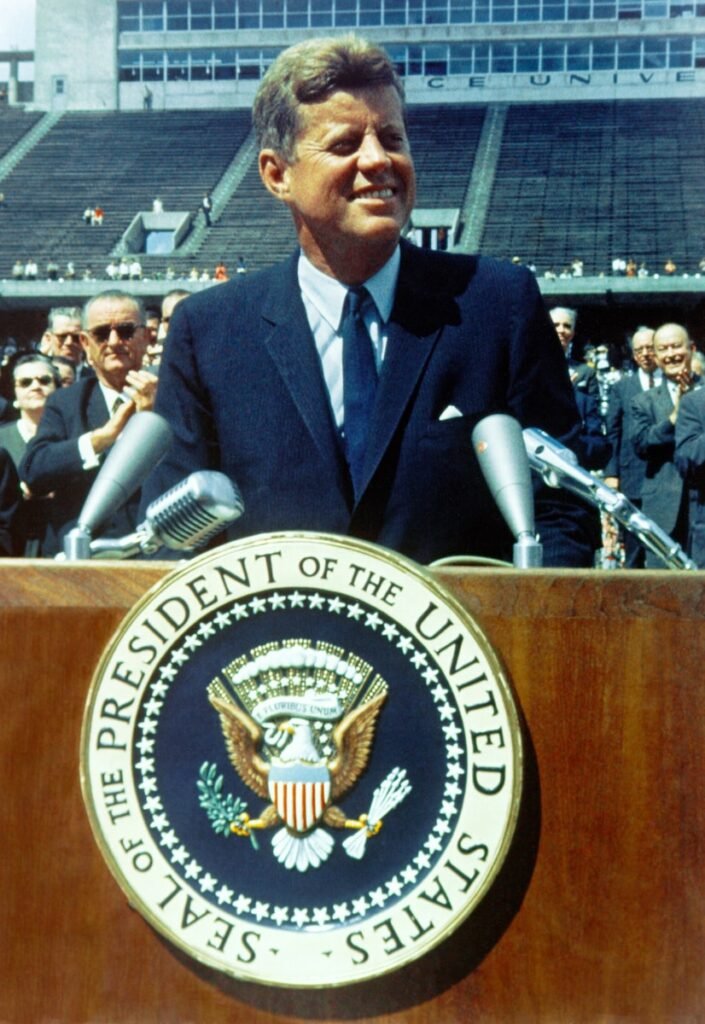The Enigma of JFK’s Assassination
The assassination of President John F. Kennedy on November 22, 1963, remains one of the most enduring enigmas in American history. From the moment the fatal shots rang out in Dallas, Texas, countless theories and speculations about the true nature of the event have captivated the public’s imagination. Despite numerous investigations, the mystery surrounding JFK’s assassination has yet to be definitively solved. This article aims to delve into the various aspects surrounding this historic event, examining the official investigation, the conspiracy theories that have emerged, and the ongoing quest for truth.
Historical Context: America in the 1960s
To understand the significance of JFK’s assassination, it is crucial to consider the political climate of the 1960s in America. The United States was grappling with the Cold War, civil rights movements, and an increasingly divided society. Kennedy’s presidency was marked by these challenges, as well as his desire for progressive change. Amidst this backdrop, his untimely death had a profound impact on the nation, leaving many to question the motives behind the assassination.

November 22, 1963: The Fateful Day in Dallas
On that fateful day, President Kennedy and First Lady Jacqueline Kennedy arrived in Dallas as part of a political trip. As their motorcade made its way through Dealey Plaza, shots rang out, fatally injuring the president. The events that unfolded in a matter of seconds would forever change the course of American history. Chaos ensued, and within hours, Lee Harvey Oswald was arrested for the assassination. Kennedy’s death shocked the nation, leaving many to wonder if there was more to the story than meets the eye.
The Official Investigation: The Warren Commission
In the aftermath of JFK’s assassination, the government established the Warren Commission to investigate the event. Led by Chief Justice Earl Warren, the commission concluded that Lee Harvey Oswald acted alone in assassinating the president. However, the commission’s findings have been met with significant skepticism, fueling the persistence of conspiracy theories that challenge the official narrative.
Conspiracy Theories: A Multitude of Explanations
From the moment the Warren Commission released its report, conspiracy theories began to emerge. These theories range from the involvement of organized crime to alleged government cover-ups. Some speculate that the CIA, FBI, or even Vice President Lyndon B. Johnson had a hand in orchestrating Kennedy’s assassination. These theories have captivated the public and created a sense of intrigue that persists to this day.
The Single Bullet Theory: Plausible or Implausible?
Central to the Warren Commission’s conclusion is the Single Bullet Theory, which posits that a single bullet was responsible for both JFK’s injuries and those sustained by Texas Governor John Connally. Skeptics argue that the trajectory and timing of the shots make this theory implausible, fueling doubts about the accuracy of the official investigation.
The Role of Lee Harvey Oswald: Lone Assassin or Patsy?
Lee Harvey Oswald’s role in JFK’s assassination remains a subject of intense debate. The official investigation labeled him the lone assassin, but some theorists believe he was merely a patsy, used to divert attention from the true culprits. Oswald’s mysterious background and subsequent murder while in police custody have only deepened the intrigue surrounding his involvement.
Forensic Analysis: Examining the Physical Evidence
Over the years, forensic experts have examined the physical evidence from the crime scene in an attempt to shed light on the events of that fateful day. Ballistics, witness testimonies, and photographic evidence have all been analyzed in detail. However, conflicting interpretations of this evidence have only added to the confusion and uncertainty surrounding the assassination.
The Grassy Knoll: A Second Shooter?
One of the most persistent theories suggests the presence of a second shooter on the grassy knoll in Dealey Plaza. Eyewitness accounts and acoustic evidence have been cited to support this theory. While some dismiss it as mere speculation, others argue that it provides a more plausible explanation for the trajectory of the bullets and the nature of Kennedy’s injuries.
Unanswered Questions: Inconsistencies and Missing Information
Despite numerous investigations, key questions surrounding JFK’s assassination remain unanswered. Inconsistencies in witness testimonies, missing documents, and the sudden deaths of individuals linked to the case have fueled suspicions of a cover-up. The lack of clear answers has only served to perpetuate the enduring mystery surrounding this tragic event.
Legacy of Suspicion: Impact on American Politics and Society
The assassination of JFK left an indelible mark on American politics and society. The lack of closure and the persistence of conspiracy theories have led to a widespread erosion of trust in government institutions. Some argue that the public’s skepticism surrounding JFK’s assassination paved the way for a culture of distrust that continues to shape American society and politics to this day.
The Quest for Truth: Continuing Efforts to Solve the Mystery
Decades after the event, the quest for truth regarding JFK’s assassination persists. Researchers, journalists, and historians continue to scrutinize the available evidence and delve into archives in search of answers. The renewed interest in the case and advancements in technology offer hope that one day the unsolved mystery may finally be unraveled, providing closure to a nation still haunted by the events of November 22, 1963.
The assassination of President John F. Kennedy remains an enigma, shrouded in conspiracy theories, unanswered questions, and a legacy of suspicion. As the years pass, the mystery only deepens, fueling ongoing efforts to uncover the truth. While definitive answers may remain elusive, the lasting impact of JFK’s assassination on American society and politics ensures that the quest for truth will continue for generations to come.

